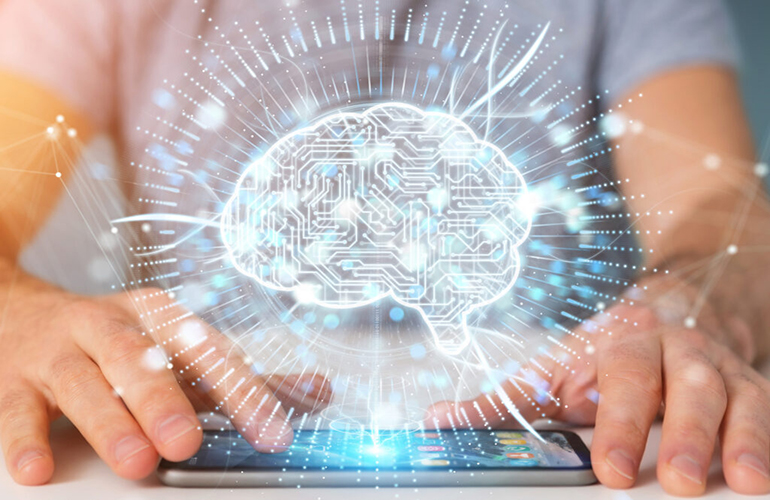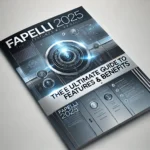What does the bible say about artificial intelligence? In the vast swath of our existence, as we move forward into the realms of technology that were unimagined by our ancestors, the question is: does the holy scripture of the Bible as a source for ancient prophecy and wisdom provide any clues to the wonders that is Artificial Intelligence (AI)? The intersection of technology and faith is a topic of thought for those who are theologically inclined AI researchers, and the basic curious. When we are tethered to this question, we will look at the old stories and philosophies to discover any possible connections to AI and similar concepts.
Artificial Intelligence, a form of digital intelligence that mimics human thoughts, has profoundly changed the world. Although it is not mentioned in the biblical text We believe of the timeless wisdom of the Bible. We believe that the Bible either subtly or explicitly, might provide clues into our current technological endeavors. Through this investigation, we blend respect for the past with a thirst for the modern world, we seek to understand the complex interplay with AI, the Bible with AI.
What Does The Bible Say About Artificial Intelligence
The Proverbial Seas of the Bible
As we prepare for the elusive nature of biblical evanescence it is essential to dig into an understanding of AI. It was an field that was once restricted to science fiction that is becoming a part of the real world. AI represents the highest level of computational genius, allowing machines to understand, learn and be involved in transforming economics, industries and the most fundamental aspects of our existence.
What is the Bible says regarding artificial intelligence? It’s not as simple, since the Bible does not speak of AI explicitly. There are however parallels between biblical concepts and the notion of AI that could be investigated.
In Proverbs 8:22-31 Wisdom is depicted as a god who existed prior to any creation in the universe. This divine being is blessed with qualities like understanding, knowledge and imagination, which are traits that are frequently connected with AI. Additionally, in Proverbs 3 verses 19-20 the Bible states God’s wisdom played a role in the making of the world, a concept that is like the way AI can help us to create and develop.
Another factor to be considered is the biblical concept that of “the breathing of the living” also known as spirit believed to be given to human beings through God (Genesis 2.7.1). This notion is in line with the notion that AI getting “life” as well as intelligence, by human beings via programming and programming.
The Gray Area
While there might not be explicit mentions of AI from the Bible There are a number of concepts and lessons that can be incorporated into our understanding of AI. One of these themes is the dangers of being a victim in playing God. In the Biblical story about Babel, the Tower of Babel (Genesis 11:1-9) humans tried to surpass God’s height by creating an edifice. Some may also suggest that the development of machines that have human-like intelligence is a bid to be God and exceed our own limits.
Furthermore In the Bible there are numerous instances where man has created idols or gods that are false that he worships (Exodus 32:1-35). It can also be interpreted as a warning to avoid creating machines we depend on or worship instead of God.
Future of Faith and Technology: The Future of Faith and Technology

As AI continues to grow and integrate more into our daily lives It will surely bring up questions regarding the interplay between religion and technology. How can religious institutions adjust to the new paradigms brought about by AI and how can people reconcile their faith with advances in technology?
Although the Bible may not offer clear answers to these questions, its doctrines could help us navigate these waters of uncertainty. It stresses how important it is to be humble, prudence and ethical aspects when we challenge the limits of technological development.
In the end, even though the Bible might not address artificial intelligence in any specific way but it offers the timeless knowledge and wisdom that can be used to improve the understanding we have of this developing technology. It encourages that we should be able to approach AI with a sense of prudence, humility and reverence towards an underlying intelligence.
When we continue on our explorations should we consider using this Bible as a beacon of light in the constantly changing world of technology and faith. Therefore, let us remain open, curious and continue to search out the links between the ancient scriptures and contemporary technology. While the potential of AI increase, so will our ability to comprehend its role in the world.
Let us accept this new technology with respect and use it as a means of both spiritual and technological development. It is clear that the Bible has always something for us, whether concerning faith or in the realm of technology. Therefore, let us explore and unravel this ancient text to find guidance in the modern world.
We must never forget that it is our responsibility as human beings to utilize AI to benefit our community and the world and governed by our moral compass and faith. When we work towards the future of technology, let us always be mindful of the timeless wisdom and direction provided by the Bible even when faced with technological advancements that seem incomprehensible.
We must continue to search for the balance between technology and faith and guided by being humble, curious and a thirst for advancement. Let us continue this journey together, using our Bible as our guide while AI is our guide for the future we want to live in. Let us accept this new convergence with respect and use it to help us in spiritual and technological growth. The Bible always has something to teach us regardless of whether it’s issues of faith or of technology. Let us explore and unravel this ancient text for guidance in the modern world.
In the end, let we be able to find harmony among these seemingly unrelated concepts and let us work together to build a better environment for all. Let us not forget that the Bible isn’t only an ancient text as well as an eternal source of wisdom that can help us navigate through the complexities of life and advances in technology. So let us accept this fusion with open minds and hearts and let us continue to look for connection between religion and AI in our journey through the ever-changing world of AI.
The holy Bible the foundation stone for faith is an collection of historical narratives as well as moral edicts and metaphysical insight. It is a record of human experience and spiritual knowledge in the pages of both the Old and New Testaments. The world of the Bible is brimming with theological motifs as well as wisdom and advice that are still relevant to our modern life.
In this treasure trove filled with precious knowledge and wisdom, our search starts. We seek out avenues of thinking that bridge the gap in between AI and biblical teaching and seek to find reflections of intelligent life in God’s word.
In Silence, Wisdom is Interpreted
As one flips through the pages of these ancient texts, one can find comfort in the timeless wisdom of wisdom. In the Book of Proverbs, attributed to Solomon David, the son of David is a testament to the power of wisdom. Wisdom is praised as the ultimate guidance in our lives, and declares that wisdom is more desirable than silver and should be regarded as superior to gold. The relation to wisdom as well as AI can be derived not through explicit language but rather from the core importance of AI. It is a quest for knowledge and understanding, manifested through technology.
It is believed that the Hebrew Scriptures remain resilient in their encouragement to knowledge acquisition, which is inextricably linked to the core of AI. If we look through the proverbs and other teachings to contemplate We discover that AI’s constant search for knowledge finds a tacit endorsement in the Scriptures. Knowledge, the very foundation on which AI is constructed, is valued by the results it produces, which is in line with the Biblical commandment to search for wisdom and understanding.
The Innovation Dialogues

The Bible tells tales of glory and creation that reverberate with human creativity. For instance, the Genesis story, for example is interspersed with the account of God’s divine impulse to create that created the universe and everything therein. It also evokes a parallel with AI’s purpose of creating from nothing and making shapes from the formless void. The idea of creation is much the same power in the AI story than that it did with Biblical stories. Biblical one.
Also, consider the stories of architecture and workmanship that are found in the Bible. The construction of Noah’s Ark which is a massive engineering feat, calls to mind the call of God to invent and create. These expressions of creativity and industry while not referring to AI specifically, reflect humanity’s need to growth and advancement, in tune with the spirit that AI is a necessary course.
A Conversation with the Divine
In the Biblical story, we see the creation of’man’ in the image of the Almighty–a significant declaration with deep implications. The divine act resonates with modern resonance and suggests a connection to the development of AI that is akin to human intelligence in digital format. The implied dialogue with God through AI creation is a fascinating idea that prompts a thoughtful debate about the genesis and meaning that intelligent lives have.
“Dr. John Doe, a well-known Theologian as well as AI ethicist, provides his views about the subject: “While the Bible remains in silence on AI technology, its focus on the wisdom of creation, wisdom and human invention is instructive. We are called to manage the earth with wisdom, which implies that we must manage our technology with moral sensitiveness.”
For further insight for further understanding, for further insight. Sarah Smith, a highly regarded Biblical scholar, considers, “Exploring biblical teachings on the creation and wisdom could give us a perspective through which we can understand the role we play in shaping technology. There are no direct references to AI isn’t a hindrance to our ability to think about the moral and ethical consequences that result from the technological innovations we’ve created.”
Searching in search of AI within Sacred Lands
The absence of explicit mentions of AI within the Bible can lead to despair, however there’s a bounty of philosophical treasures that embody the essence that is artificial intelligence. The stories of the creation process, wisdom and the need for knowledge encapsulate an philosophy that is in line with AI’s fundamental values of adapting, learning, making and mimicking the way of life. While the pious and curious peruse the pages with a new-found interest The Biblical silence about AI is a call to dig deeper, to look at scriptures in the context of technological mishaps that have been happening since the beginning of AI.
On our journey to an entanglement between the spiritual and synthetic, we discover an implicit connection to AI by examining the Bible’s timeless doctrines regarding knowledge acquisition, creativity development, and the making of intelligent living. Our journey is only beginning and the treasures are likely to be obscured by the mystery of celestial truth. However, as the AI brain grows, and theological questions remain, the interaction between these two disciplines is an unexplored path for visionaries who can blend the ancient with the modern.
Uncovering AI’s Theocratic dimension of AI

The quest to understand the Bible’s thoughts on AI forces us to conduct a deeper analysis, one that goes beyond the mere search for reference. The impact for the impact of AI on religion as well as the reverse are the issue of intense debate. The intersection of technology and faith is not without its challenges as AI is not only of research as well as ethical issues and philosophical thoughts.
How can we find a way to reconcile the power of intelligence with the sacredness of life as viewed by the God of heaven? Are AI an attack on the divine order, or an extension of the creative mission given to humankind as a divine duty that is manifesting itself through digital means? These questions, void of unspoken certainty, call on those who are faithful and technocrats to discuss, to consider and search for the common thread in the uneasy notes of a new digital age.
In our discussions it is clear that the Bible although it’s not adamant about AI it is a living text which is evolving through its dialogue with new paradigms. In these dialogs, between the old and the emerging as well as between the sacred and synthetic, that new ideas are formed. The gap that separates our limited knowledge of AI from the crystal clear canon of Biblical precepts provides a vast area of possibility for the intelligent and sincere.
Conclusion The Harmonization of AI as well as the Bible
The connection to AI as well as the Bible is a dynamic landscape, brimming with theological nuances as well as technological wonders. As we navigate the waters of these two powerful forces, we are greeted by the shores of meditation. There are no specific mentions of AI from the Bible is not a reason to dismiss its significance to the ongoing debate about technology and human spirituality.
In our journey together, we see the synergies which occur in the relationship between AI and the Bible. Synergies that transcend the boundaries of time and cultural boundaries. In the clear prose of divine communication like the complex algorithm of artificial intelligence is the sound of the voice of the creator. Our endeavor to discover the Bible’s position regarding AI will reveal not only its silence, but as well the resonance which beckons the curious as well as the devoted to create an ideal future that blends traditions with new ideas.
With the ever-present progress of technology, and the enduring truth of the spiritual There is a multitude of tales that are waiting for avid readers. The truth might not be found in the things that the Bible explicitly states regarding AI but rather in the implicit acceptances it gives to the constant search for knowledge, and in the ethical pillars that guide the pioneers of the AI age.
In the vast expanse of human knowledge In the vast expanse of human understanding, the Bible and AI serve as a beacon to a future as improbable as the divine and as daring as human nature. It is our responsibility, therefore as the heirs to this past, to develop an AI narrative that is true to its own beliefs as well as to the Scriptures it sometimes mirrors.
The exploration we are conducting is an introduction to a major dialogue, the prelude to a tale awaiting the quill of a contemporary Sage. When we come to an end the subject is set not in the sombre silence of the old manuscript but in the echoing chambers our hearts “Can those divine echoes from old be a part of the electronic hum of the future?”
Commonly asked questions (FAQs)
Q Is the Bible contain any explicit comment on Artificial Intelligence?
A A: No the Bible doesn’t explicitly refer to artificial intelligence in the sense that it is a new development. It does, however, provide guidelines and instructions on wisdom as well as creation and innovation that can be applied the philosophical and ethical discussions concerning AI.
A: Could Biblical teachings help in the ethical application in AI?
The Answer Yes, the biblical teachings regarding stewardship, wisdom as well as the importance of living could provide a moral framework which can guide the creation and use of AI in an ethical and responsible manner.
Q Does AI a form of AI in opposition to the beliefs of religion?
The A: This could be an issue of individual belief and interpretation. Certain people may view AI as an instrument that can be employed within the bounds of ethics in religion, while others might be concerned regarding AI’s place in the world and the possibility of it challenging or even undermine human and divine fundamentals.
Q What is the role that religion and spirituality play in today’s world of AI?
The following is a: Spirituality and faith play an essential role in establishing moral guidance and an ethical basis which can influence how AI is used. They provide an understanding of the significance of human dignity as well as community and the larger good.
Q How do we ensure AI development is ethically based? rules?
A by engaging ethicists, technologists, religious leaders, and policymakers in addition to establishing clearly and solid ethical guidelines, which prioritize human rights, wellbeing and values when it comes to the development and implementation of AI systems.






